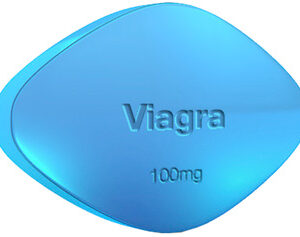Levitra Overview
Levitra, known chemically as vardenafil, is a prescription medication utilized primarily to treat erectile dysfunction (ED) in adult men. By increasing blood flow to the penis during sexual stimulation, it assists in achieving and maintaining an erection. Levitra is classified as a phosphodiesterase type 5 (PDE5) inhibitor, similar to other well-known ED medications.
Usage Indications
Levitra is prescribed for the management of erectile dysfunction. This condition is characterized by the inability to achieve or sustain an erection suitable for sexual intercourse. It is crucial to note that an adequate level of sexual stimulation is necessary for Levitra to be effective.
Dosing and Administration
For most patients, the recommended starting dose of Levitra is 10 mg, taken orally when needed, approximately 60 minutes before sexual activity. Depending on individual efficacy and tolerability, the dose may be increased to a maximum recommended amount of 20 mg or decreased to 5 mg. The frequency of administration should not exceed once daily, and Levitra can be taken with or without food.
Precautions
Before using Levitra, patients should discuss their medical history with their healthcare provider, especially concerning heart problems, recent heart attack, stroke, liver disease, kidney disease (or if on dialysis), high or low blood pressure, dehydration, penile conditions, history of painful/prolonged erection (priapism), conditions that may increase the risk of priapism (such as sickle cell anemia, leukemia, or multiple myeloma), eye problems, stomach ulcers, or bleeding problems.
Risks and Warnings
Caution should be exercised when prescribing Levitra to patients with a known history of QT prolongation or patients who are taking medications known to prolong the QT interval. Levitra should not be used in combination with nitrate drugs or ‘poppers’ containing amyl or butyl nitrite because it can cause a serious decrease in blood pressure. Those with cardiovascular risks should not use Levitra, as sexual activity may pose a risk to their health.
Contraindications
Levitra is contraindicated in patients who are using a nitrate drug for chest pain or heart problems, including nitroglycerin, isosorbide dinitrate, isosorbide mononitrate, and some recreational drugs such as “poppers.” It should not be taken by individuals who are allergic to vardenafil.
Drug Interactions
Levitra should not be used with other PDE5 inhibitors or other treatments for erectile dysfunction. Caution is advised when used with alpha-blockers or anti-hypertensives, as the combination can lead to hypotension. Co-administration with medications such as ketoconazole or itraconazole (antifungal drugs), indinavir or ritonavir (HIV protease inhibitors), and other drugs that affect the cytochrome P450 (CYP3A4) pathway should be approached carefully.
Adverse Reactions
Common adverse reactions may include headache, flushing, stuffy or runny nose, indigestion, upset stomach, dizziness, and back pain. Patients should seek immediate medical assistance if they experience severe side effects such as vision changes, sudden vision loss, hearing problems, ringing in the ears, sudden hearing loss, chest pain, pain spreading to the jaw or shoulder, nausea, sweating, erection lasting more than 4 hours, or a painful erection.
Safety Information
Prior to starting treatment with Levitra, it is imperative to inform healthcare providers about all medical conditions, including heart rhythm problems, heart disease, recent heart attack, recent stroke or heart failure, personal or family history of Long QT syndrome, high or low blood pressure, seizures, liver disease, kidney disease (or if on dialysis), blood cell disorders, bleeding disorders, stomach ulcers, hearing or vision problems, and physical deformity of the penis
Overdose Information
In the event of an overdose, standard supportive measures should be adopted as required. Renal dialysis is not expected to accelerate clearance as vardenafil is highly bound to plasma proteins and is not significantly eliminated in the urine. If an overdose is suspected, seek immediate medical attention or contact a Poison Control Center right away.
Storage Guidelines
Levitra should be stored at room temperature away from moisture and heat. Tablets should be kept in their original package until they are used. Keep out of reach of children.
Levitra FAQs
Can I take Levitra every day?
Levitra should be taken only as needed for sexual activity and not more than once daily. Following your healthcare provider’s instructions on dosage frequency is important.
Will Levitra affect my sexual desire?
Levitra does not increase sexual desire but helps to achieve an erection when there is sexual stimulation.
Does food impact Levitra’s effectiveness?
Levitra can be taken with or without food. However, a high-fat meal may slow down its effectiveness.
What should I do if Levitra does not work?
If Levitra does not help you get an erection or if your erection does not last long enough to complete sexual intercourse, consult with your doctor.
Can females use Levitra?
Levitra is not indicated for use in women and the safety and effectiveness have not been established in this population.
Can I drink alcohol while taking Levitra?
Alcohol can increase the risk of side effects such as dizziness. It’s advisable to limit or avoid alcohol while using Levitra.
Can Levitra be taken with other medications?
Tell your healthcare provider about all medications you use, and follow their guidance on drug interactions. Some drugs can cause dangerous effects when used with Levitra.
This guide provides an overview of Levitra and is not exhaustive. Always consult with a healthcare professional for personalized advice and treatment options suitable for your specific health situation.




Ryan (verified owner) –
Efficient delivery with professional customer service.